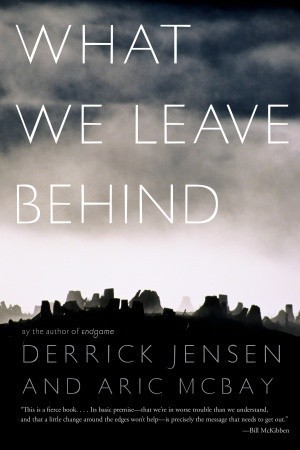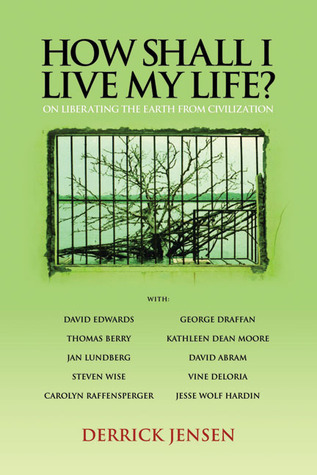
What We Leave Behind
Book Description
Trapped between the loss of paradise and the haunting echoes of a damaged planet, 'What We Leave Behind' plunges into the stark realities of environmental collapse. Derrick Jensen's urgent and passionate prose challenges the status quo, exploring the deep connections we share with the world around us. As humanity grapples with its choices, voices rise in defiance, weaving a tapestry of hope, despair, and awakening. Each page ignites a spark, urging a reckoning not just within ourselves, but for the future of all. What legacy are we crafting, and will it be one of destruction or rebirth?
Quick Book Summary
In 'What We Leave Behind,' Derrick Jensen, along with Aric McBay, delivers a searing meditation on the repercussions of our modern lifestyles and the environmental devastation they inflict. The book confronts the myth of civilization’s progress, interrogating our personal and collective waste—both literal and symbolic. Through candid storytelling, philosophical reflection, and scientific insight, Jensen asks readers to question the sustainability of our daily choices and the systems enabling ecological destruction. Challenging the comforts and dogmas of industrial society, the authors urge for a radical reevaluation of our relationship to nature. Rather than hoping technology or minor reforms will solve systemic problems, they champion a return to practices grounded in respect, humility, and ecological consciousness, ultimately asking: what kind of legacy will humanity leave for those who come after us?
Summary of Key Ideas
Table of Contents
The Consequences of Human Wastefulness
Derrick Jensen's 'What We Leave Behind' immediately confronts the pervasive disregard for the consequences of our waste—be it physical, emotional, or spiritual. The authors explore the staggering scope of what modern civilization discards, from toxic byproducts to irreplaceable habitats, revealing the sheer scale at which consumer society externalizes costs onto nature. Cultural denial becomes a central theme, as Jensen and McBay illustrate how deeply ingrained habits and narratives blind us to the ecological devastation underpinning our comforts.
Questioning the Myth of Progress
A critical thread running through the book is the systematic deconstruction of the idea of perpetual progress. Rather than viewing technological advancement as inherently positive, the authors invite readers to reckon with the cost of each 'improvement.' Whether it’s urban infrastructure, mass production, or the promise of green technology, the book urges skepticism of narratives that paint destruction as development. This section insists that true advancement must account for all forms of life and the health of living systems, not solely human convenience or economy.
Reevaluating Civilization’s Foundations
Jensen and McBay also scrutinize the very foundations of what we call civilization, arguing that its structure is predicated on domination—over land, water, wildlife, and sometimes over each other. The book challenges readers to reflect on how laws, religions, and social agreements often perpetuate extraction and hierarchy, asking if it is possible for civilization, as currently organized, to exist in harmony with the planet. This examination leads inevitably to the conclusion that meaningful change requires not just reforms but fundamental shifts in worldview.
Deep Connection and Responsibility to the Natural World
Interwoven throughout are stories and insights emphasizing the vital importance of connection to place, land, and community. The authors extol indigenous knowledge, permaculture, and bioregionalism as paths toward healing the separation between humans and nature. Personal responsibility emerges as a powerful theme—not in isolation or guilt, but as an ethic of care and respect extending to future generations. Jensen’s prose is evocative, pushing readers to “fall in love with the world” as a form of resistance against systems that profit from apathy.
Envisioning a Transformative Future
In its closing movements, 'What We Leave Behind' turns from critique to vision. The authors stress that hope is not passive, but an active choice forged in recognition of harsh realities and a commitment to act. They urge readers to imagine and begin to build a future where our legacies are measured not in what we consume, but in what we nurture and restore. The call is clear: to confront despair with action, to dismantle destructive systems, and to foster regenerative cultures that will sustain the world long after we are gone.
Download This Summary
Get a free PDF of this summary instantly — no email required.





